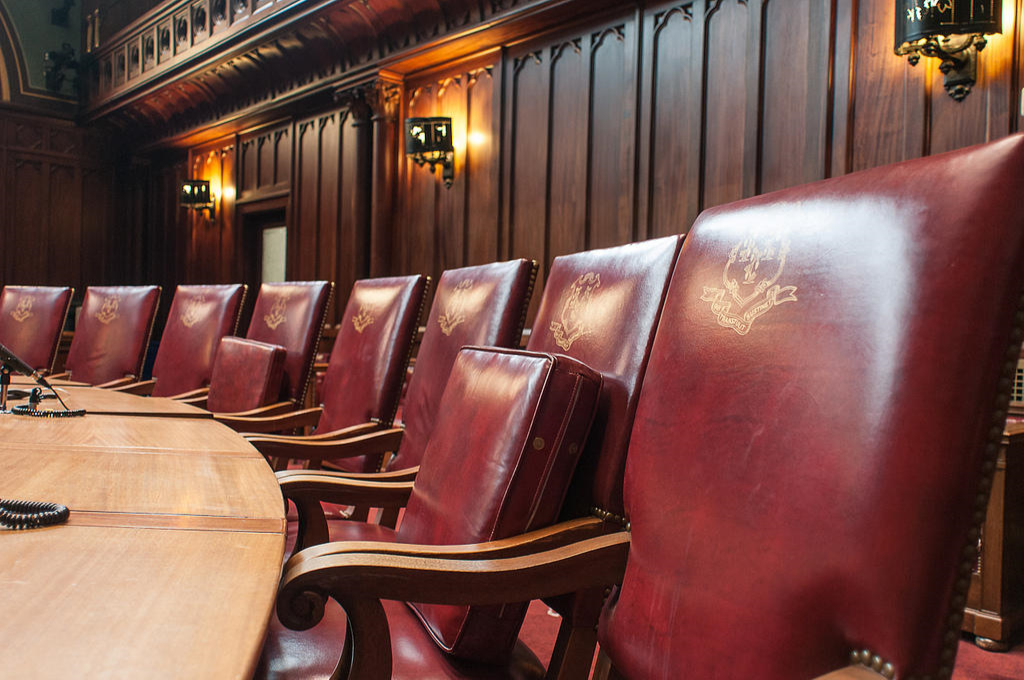The taxpolicyct.ORG website is under construction… with new updates being added as the 2026 session of the Connecticut Legislature approaches.
The 2025 legislative session began on January 8. As the session got underway, these articles - a six-part series on the constitutionality of the state’s budget guardrails - appeared on the CT Mirror website, written by Alex Knopp.
Part 1: Are CT’s budget guardrails constitutional?
The debate over whether Connecticut’s unique set of fiscal controls should be considered “guardrails” or “roadblocks” rages almost daily, but ever since the constraints were first adopted, the most consequential issue has been ignored: Are Connecticut’s budget guardrails, taken as a whole, constitutional? READ MORE…
Part 2: The CT Constitution’s text does not authorize the guardrails
The statutory budget guardrails adopted in 2017 and re-adopted in 2023 eviscerated the budget-making process used for decades by the General Assembly by altering the balance between the executive and legislative branches. READ MORE…
Part 3: The guardrails violate the majority vote rule
The first bedrock rule of legislative procedure violated by the budget guardrails is the majority vote rule - the statutory guardrails are designed to require a three-fifths vote of the state House and Senate. READ MORE…
Part 4: The guardrails impermissibly bind future legislatures
Making and changing laws is the General Assembly’s prerogative under our constitutional system, and a prior legislature’s budgeting process cannot bind this legislature. READ MORE…
Part 5: The bond lock impermissibly delegates legislative authority to bondholders
The bond lock requires the state treasurer to include a pledge to bond purchasers that for ten years the state will not enact any laws that change the state’s obligation to comply with the state spending cap or statutory guardrails. READ MORE…
Part 6: If the guardrails are unconstitutional, then what?
The General Assembly should now approve what it neglected to do in 2017 or in 2023: adopt a “best practices” approach by establishing a permanent Fiscal Commission, and taking a series of additional steps. READ MORE…
The opinions of the authors expressed here do not necessarily represent the consensus of all group members.
TAX POLICY IN THE NEWS
Fiscal Guardrails Going Further Than Intended l CT Mirror l Dec. 2024 l Read more
CT’s revenues are finally growing faster than its debt, analysts say l CT Mirror l Dec. 2022 l Read more
Lower property taxes, help residents l Danbury News-Times l Nov. 2022 l Read more
Fundamental property tax reform l CT Mirror l Feb. 2022 l Read more
States Should Reject Baseless Claims for Tax Cuts l Center on Budget and Policy Priorities l Jan. 2022 l Read more
Harnessing State Tax Codes l Institute on Taxation and Economic Policy l Jan. 2022 l Read more
UPCOMING EVENTS
QUOTES WORTH RE-QUOTING
“The guardrails have helped to stabilize the state’s fiscal position, but they leave policymakers with limited flexibility to meet current needs or make other future-oriented investments.” - 12.2024, Yale University Tobin Center for Economic Policy
“Our members are telling us in no uncertain terms that they’re in distress,” - Gian-Carl Casa, CEO, CT Community Nonprofit Alliance, New London Day, 1.4.25
“It should be a public conversation, especially in light of the number of studies that have come out around the guardrails.” - Chris DiPentima, President & CEO, Connecticut Business & Industry Association, 1.4.25, New London Day
“We did something historic — Democrats and Republicans — that has positioned us to be in the best fiscal position in this state in decades.” - State Comptroller-elect Sean Scanlon, 11.2.22, CT Mirror
“In Connecticut, unlike a lot of other states in the country, the only real source of locally generated revenue is the property tax.” - 12.5.22, Connecticut Public Radio
“Property owners in Connecticut pay among the highest tax rates in the nation, according to a new survey by WalletHub.” - 3.2.22, FOX61 News
“Connecticut municipalities should be allowed to decide locally whether they want to raise revenue through something other than property taxes.” - 5.23.22, Liam Brennan, CT Mirror
“There’s no other tax that is felt as acutely as the property tax and we need to find ways to address it,” said Senate President Pro Tempore Martin Looney. - 12.20.21, CT Examiner
“The property tax generally is recognized as one of the most regressive taxes in the state, falling disproportionately hard on low- and middle-income households.” - 9.16.15, CT Mirror
REMEMBERING… Property Tax Working Group members Bill Cibes and Lyle Wray
Bill Cibes died in February 2024. He was chancellor emeritus of the Connecticut State University System; former secretary of the state Office of Policy and Management in the administration of Gov. Lowell P. Weicker Jr.; and a former state representative from New London who co-chaired the Finance, Revenue and Bonding Committee. Cibes, who earned a Ph. D. from Princeton University, was a professor of political science at Connecticut College in New London. A recognized authority on higher education, taxation and budgeting, he chaired numerous boards and commissions.
Lyle Wray died in January 2024, having served as executive director of the Capitol Region Council of Governments, a group of 38 municipalities in central Connecticut and the largest regional planning organization in the state, for nearly two decades. Previously, he served as county administrator and human services director for Dakota County, MN and executive director of the Citizens League in Minnesota. Wray was a member of the National Academy of Public Administration and co-authored the performance management book, Results That Matter.























